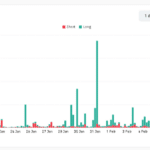Jan. 5 (Bloomberg)
By Katie Hoffmann and Joseph Galante
The engines that have lifted the U.S. economy out of every recession since World War II will be of little help this time around.
Inventory rebuilding, household spending, home construction and payroll growth -- the forces that powered, to a greater or lesser extent, each recovery since 1945 -- may remain missing for much of 2009. A glut of unsold properties may keep housing depressed, while shriveled savings will discourage consumers. Companies may be reluctant to restock and rehire while their profits are squeezed.
“There are no obvious drivers of growth from the private sector,” says Jan Hatzius, chief U.S. economist at Goldman Sachs Group Inc. in New York.
UBS Securities LLC forecasts that gross domestic product will contract at a 3 percent annual pace this quarter after shrinking 4.5 percent in the final three months of 2008.
Inventory swings played a key role in the 16-month recession of 1973-75 and the recovery that followed. Companies slashed stocks in 1974 and 1975 as demand dropped, and then rebuilt them rapidly the following year. That raised 1976 GDP by 1.4 percentage points, the biggest such contribution in 21 years.
Consumer spending and housing powered the economy out of recession in 1983, as pent-up demand sent purchases of cars and homes soaring. Payroll growth was also strong, with 1.1 million jobs created in September alone.
In 1992, housing again was a big help. Along with capital spending, residential construction spurred the biggest contribution to growth from investment since 1984.
Homebuilding and consumer spending played a more modest role in the economy’s revival in 2002, but that’s because they never declined in the previous year’s recession, which was the mildest since World War II.
All these previous factors may be missing in action this time around..
“The U.S. is in the midst of a long, deep and severe downturn,” Allen Sinai, chief global economist at Decision Economics in New York, says. “When we do recover, the engine will be government spending, not home building or the consumer.”
Sunday, January 4, 2009
Subscribe to:
Post Comments (Atom)



No comments:
Post a Comment